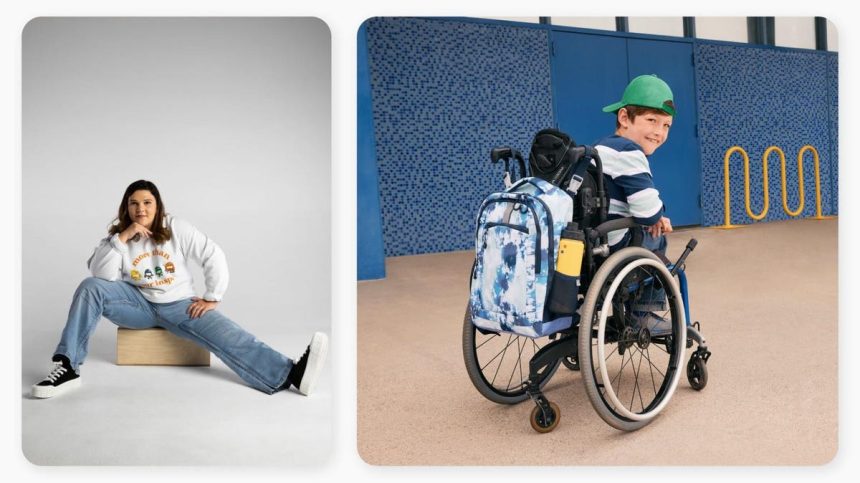In a blog post published this week, retail behemoth Walmart shared details on its Adaptive at Walmart initiative and its “inclusive solutions” for disabled people. The post’s byline was credited to Denise Malloy, Walmart’s senior vice president and chief belonging officer.
“This week, the Americans with Disabilities Act (ADA) celebrates its 33rd anniversary. Inclusive environments have come a long way over the last three decades, and I’d like to think the ADA is what cracked the glass—but there is still more work to do. Today, we’re each tasked with breaking persistent barriers for people with disabilities to help everyone feel like they belong,” Malloy wrote. “One of the best ways we serve our customers is by giving them the flexibility to choose where, when and how they shop. Walmart continues to make progress in creating inclusive shopping experiences, and I’m incredibly proud of our work.”
The Adaptive at Walmart webpage showcases a curated collection of various products, from hearing aids to backpacks to utensils and more, that have been built with accessibility in mind. According to Malloy, Walmart has been “intentional” in putting together the assortment of products, adding that doing so has allowed the company to ensure they carry the most high-quality items that have been designed for the community by the community. Walmart has worked with third parties such as No Limbits, The Shapes United, and How iRoll Sports in selecting products for the Adaptive at Walmart project.
Elsewhere in the post, Malloy stresses inclusion is a “company-wide mindset” at Walmart. She cites the company’s Inclusion Council, described as a group of “senior leaders identified accessibility as a priority,” partnering with Walmart’s internal disability-oriented employee resource group known as inABLE on designing more inclusive shopping experiences. The Accessibility Center of Excellence, Malloy said, worked with product teams in obtaining accessible products. In addition, Malloy noted Walmart announced quieter store hours in an effort to accommodate customers with certain sensory conditions where more crowded store environments would be detrimental to their experience. The so-called “sensory-friendly hours” go a long way in shopping at Walmart more enjoyable for these people, Malloy wrote.
“We strive for excellence in serving our customers, and it begins with people. Initiatives like this are the product of when we make every effort to listen to our associates and customers,” Malloy said of Walmart’s work in DEI. “We are an omni-channel retailer and creating accessible stores and online experiences enables us to fulfill our mission of saving people money so they can live better. I look forward to the future ways we can continue to bring inclusive solutions to life so our associates, customers and communities we serve feel and know that they belong.”
Read the full article here










